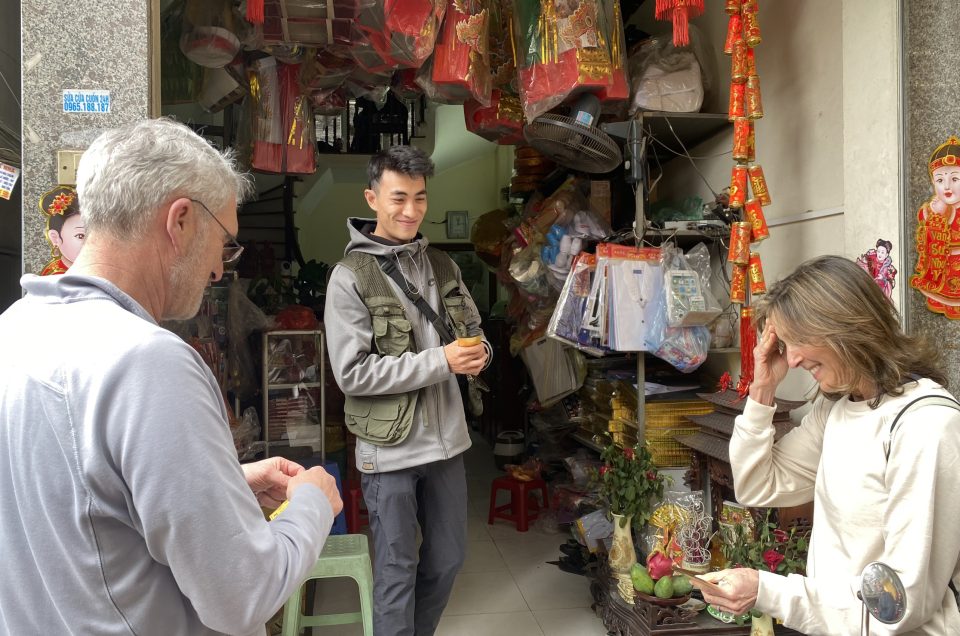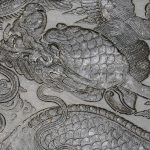You read it right—it’s acceptable to use fake currency in Vietnam. In Vietnam, we not only have fake money but also phony houses, vehicles, motorcycles, and gold that is sold legally. How could something like that be approved?

One of the strangest things is that counterfeit money is being sold everywhere, not just in local Vietnamese Dongs but also in US Dollars. They also enquire as to why Vietnamese individuals purchase bogus currency with genuine money.
They grilled me with questions that ranged from odd to perplexing.
Let’s explore the truth behind the fake money and properties in Vietnam through this post if you have ever found yourself in a similar scenario and are curious about it.
What is the fake money used for?

First off, let me say that the “fake money” you saw is not, as you might think, what you saw, and that we do not utilize it as actual money. They appear to be gold or bank notes or something similar, but they are definitely false. They are essentially constructed of paper or, occasionally, paper-thin wood.
These fraudulent goods are referred to as Vàng Mã, Hàng Mã, or Cúng in Vietnamese. Votive Paper or Votive Paper Offerings are possible translations. They are utilized on some notable events, such as memorial services and funerals, where they are burned as part of the ceremony.
Votive paper offerings, such as phony money, fake vehicles, fake gold, fake clothes, and fake homes, have the right to be sold and used legally because of this.
Why do the Vietnamese burn votive paper?

Votive paper burners hold the concept that the dead have lives in what we typically refer to as the hereafter. They will require a home to live in, a car to get around, a phone to make calls, money to buy things, and a television to view their favorite movies in this life after death.
In order to convey their material possessions to their deceased relatives in the hereafter, the Vietnamese burn votive paper that represents money, gold, clothing, homes, phones, and other essentials of life.
Votive paper sacrifices are typically burned in Vietnam. It is viewed as a manner of bridging the gap between the living and the dead and a way for people to show their respect for ancestors and spirits.
Additionally, in order for us to deliver votive paper offerings quickly by burning them, they are typically constructed of paper or flammable materials like bamboo or thin wood. I’m not sure if there is another means to get this information to those who have passed on in the hereafter. The most popular method is burning.
Also, don’t be shocked if you meet a Vietnamese who has the patience to watch and wait until the votive papers are entirely burned; it’s a required task.
Imagine sending an automobile but not burning the last two wheels; your ancestors would receive the car with those two wheels removed. Though that would be humorous, I’m not sure how much use it will be to them.
When do Vietnamese people burn votive paper?

The dead also celebrate their birthdays and holidays, but they do it in the domain of the dead.
This is why Vietnamese people organize informal gatherings of family members to remind them of their deceased loved ones on death anniversaries and other important events, such as T’t holiday in Vietnam, which is observed on the 14th and 15th day of the lunar month of July.
During these occasions, the Vietnamese regularly prepare some traditional food, flowers, drinks, and votive papers as a present, placing it all on the altar and occasionally on a table in front of the house. They then bow in reverence and whisper to them to convey their message.
Last but not least, we set all votive paper offerings on fire so they can be properly incinerated and conveyed to departed family members.
Are there any throwbacks behind this tradition?

Votive paper burning is an element of Vietnamese spiritual practices, and over time it developed into a long-standing custom in Vietnam that has been passed down from generation to generation.
The burning of votive papers conveys a lovely message since it satisfies a spiritual urge to remind the living of their predecessors. Additionally, it gives them a sense of continuity with their departed relatives wherever they are.
However, the practice of burning votive paper offerings has been misrepresented in terms of behavior. Some people, particularly in business, have a propensity to exploit this tradition for selfish ends rather than reverent ancestor worship like in the past.
Some people misunderstand the situation and believe that the more gifts they send to the departed, the happy they are. As a result, people anticipate the support and assistance of their departed loved ones in achieving their goals.
As a result, they burn a lot of votive papers, which has a bad effect on many things.
The air is heated and dirty due to the smoke and ash that are present everywhere. Due to burning votive papers, there have been fires that have resulted in the loss of life and property. Votive paper purchases cost a lot of real money, yet there are genuine individuals who are in need of assistance.
Should Vietnam abandon this traditional custom?
It’s a complicated subject!

Numerous considerations argue that Vietnam should outlaw the use of votive paper and the burning of votive offerings due to the harmful impacts of doing so.
On the other hand, it doesn’t appear like it can be stopped right away. When something has been an established custom for a while, changing takes time.
In reality, burning votive paper is still practiced today. But more and more Vietnamese people are becoming aware of the drawbacks of this practice. As a result, they cut back on or quit doing it.
Over to you

Now that you are aware of it, you can stop making false Iphones, fake houses, fake vehicles, and fake money offerings to the dead. I hope this post satisfies all of your initial questions.
I believe that we should minimize the amount of votive paper that is burned. It’s difficult for us to immediately put an end to it. However, if something ceases to be relevant, it will naturally go. It will happen soon enough.
Do you think we should continue this age-old ritual or should we stop? Please feel free to discuss your ideas with me and don’t be afraid to ask if you have any questions.
Soon, a new piece in the series on Vietnamese customs and culture will be released. Stay tuned, then!





